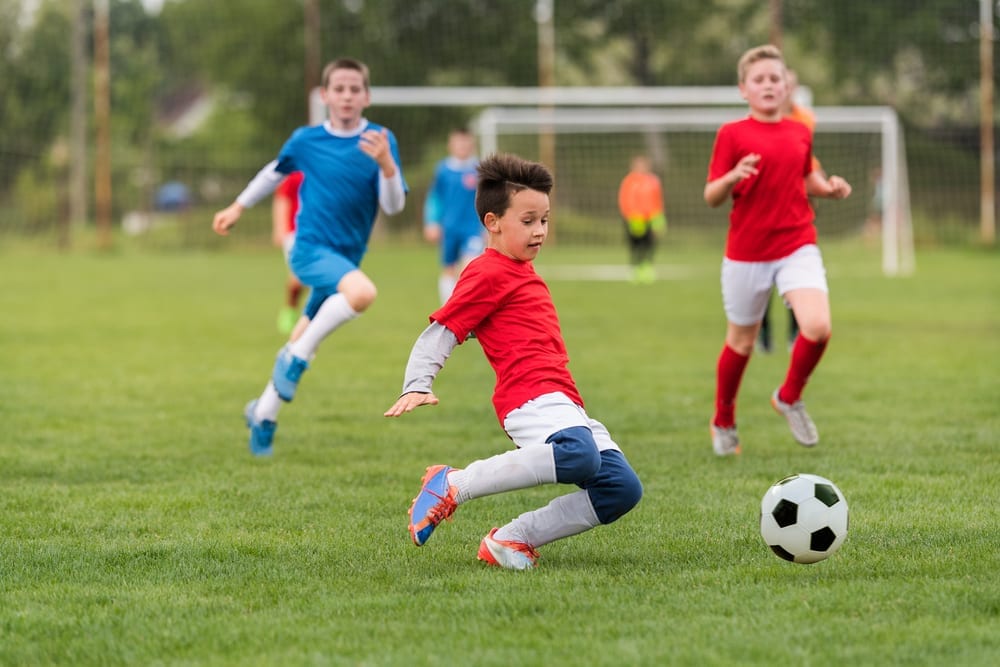The Beautiful Game for Little Feet: How Football Benefits Kids’ Development
Football isn’t just Europe’s most beloved sport—it’s also one of the best activities for children’s growth. From boosting physical fitness to teaching life lessons on teamwork and resilience, the game offers far more than just fun. Whether your child dreams of becoming the next Harry Kane or simply enjoys kicking a ball with friends, football shapes young minds and bodies in remarkable ways.
In this article, we’ll explore:
✅ Physical Benefits – How football builds strength, coordination, and endurance
✅ Mental & Emotional Growth – The confidence and discipline kids gain from the game
✅ Social Skills & Teamwork – Why football is the ultimate classroom for cooperation
✅ How to Get Started – Choosing the right club, equipment, and mindset for young players
1. Physical Benefits: More Than Just Running Around
🏃♂️ Cardiovascular Fitness & Endurance
Football keeps kids constantly moving—sprinting, jogging, and changing direction. This improves:
-
Heart health
-
Lung capacity
-
Stamina (helping them stay active longer without fatigue)
Fact: A study by the University of Copenhagen found that children who play football 2-3 times a week show 20% better cardiovascular fitness than their non-playing peers.
⚡ Motor Skills & Coordination
Dribbling, passing, and shooting require precise control. Football helps develop:
-
Balance and agility
-
Hand-eye (or rather, foot-eye) coordination
-
Spatial awareness (judging distances and positioning)
Parent Tip: Even if your child isn’t the fastest runner, football enhances technical skills that can boost their confidence.
💪 Muscle Strength & Bone Health
The dynamic movements in football strengthen:
-
Leg muscles (quads, hamstrings, calves)
-
Core stability (essential for balance)
-
Bone density (reducing injury risks later in life)
Did You Know? The British Journal of Sports Medicine found that kids who play football have stronger bones than those in non-impact sports like swimming.
2. Mental & Emotional Growth: Building Strong Minds
🧠 Improved Focus & Decision-Making
Football is a fast-paced game that requires quick thinking. Kids learn to:
-
Anticipate opponents’ moves
-
Make split-second passes or shots
-
Adapt strategies mid-game
Real-Life Impact: Teachers often report that football-playing kids show better concentration in school.
😊 Confidence & Resilience
-
Scoring a goal? Huge confidence boost.
-
Missing a pass? Teaches resilience.
-
Working hard in training? Shows the value of practice.
Parent Story: "My son was shy until he joined a local team. Now, he celebrates every small win—on and off the pitch." — Mark, father of a 9-year-old player
📉 Stress Relief & Mental Wellbeing
Physical activity releases endorphins, reducing anxiety and improving mood. For kids dealing with school pressure, football offers a healthy escape.
Expert Insight: A University of Edinburgh study linked youth football participation to lower stress levels and better emotional regulation.
3. Social Skills & Teamwork: Learning Life’s Big Lessons
🤝 Cooperation & Communication
Football teaches kids:
-
How to work as a team
-
Leadership (captains, playmakers)
-
Respect for teammates, coaches, and referees
Fun Fact: Research shows team sport kids develop stronger social bonds than those in solo sports.
🌍 Cultural Connection & Friendship
Football clubs bring together children from different backgrounds, helping them:
-
Make new friends
-
Learn about teamwork beyond school
-
Develop empathy (celebrating wins and supporting losses together)
Parent Tip: Look for inclusive clubs that focus on fun and development over just winning.
4. How to Get Started: A Parent’s Quick Guide
⚽ Choosing the Right Club
-
Local grassroots teams – Best for fun and development
-
Academy pathways – For serious players (but avoid early burnout)
-
Mixed-gender or girls-only – Depends on your child’s comfort level
🛒 Essential Gear
-
Comfortable football boots (studs for grass, flats for turf)
-
Shin guards (safety first!)
-
A well-fitted ball (size 3 for under-8s, size 4 for 8-12, size 5 for teens)
🧠 Keeping It Fun
-
Avoid pressuring kids to perform
-
Celebrate effort, not just goals
-
Let them try different positions
Final Whistle: Why Football Is the Perfect Sport for Kids
Football isn’t just a game—it’s a life teacher. It keeps kids fit, sharpens their minds, and helps them build friendships that last long beyond the final whistle. Whether your child plays in a park, a local club, or just in the backyard, the benefits are undeniable.
So, what’s next?
🔹 Find a local youth team (check FA or national federation websites)
🔹 Start with casual kickabouts (no pressure, just fun)
🔹 Watch games together (inspire them with the magic of the sport!)
Your Turn!
Does your child play football? What changes have you noticed in their confidence, fitness, or social skills? Share your story in the comments! ⚽💬




Leave a comment
This site is protected by hCaptcha and the hCaptcha Privacy Policy and Terms of Service apply.